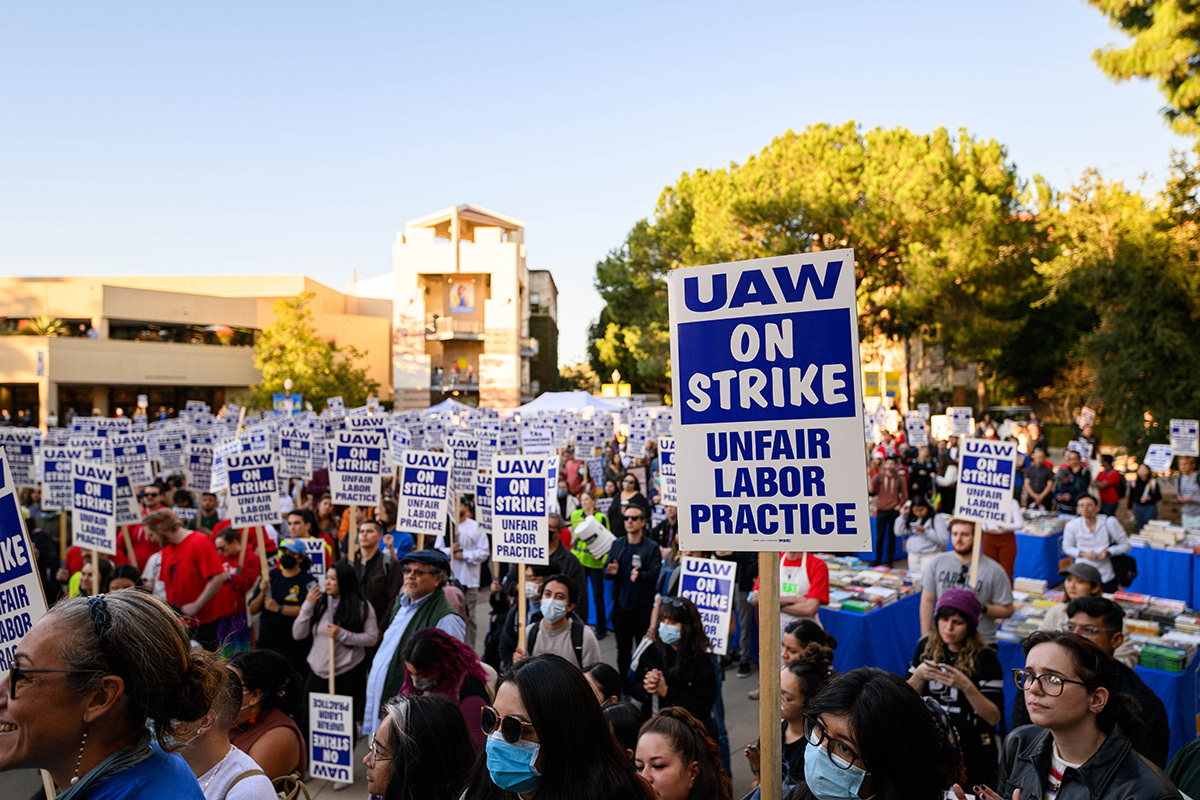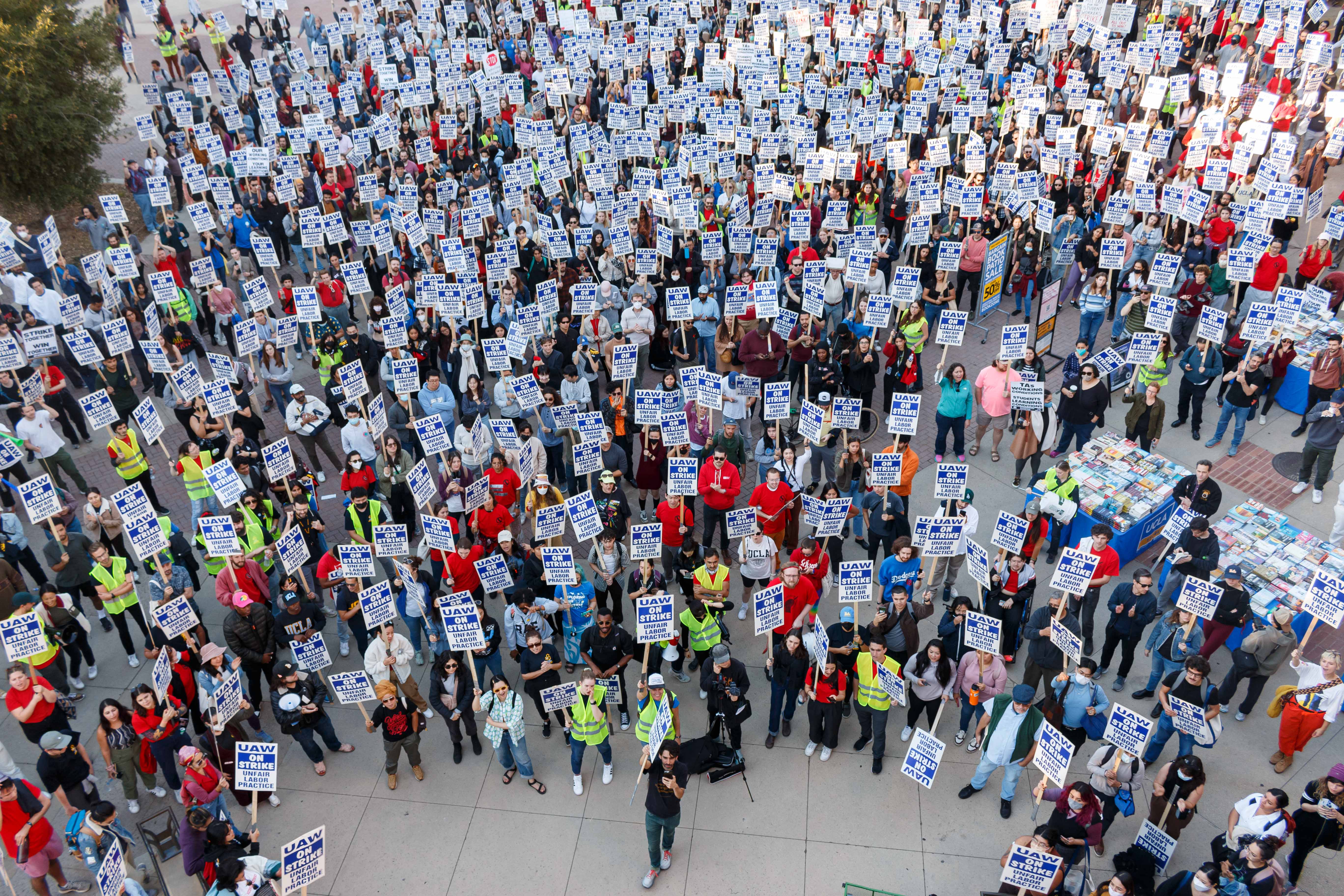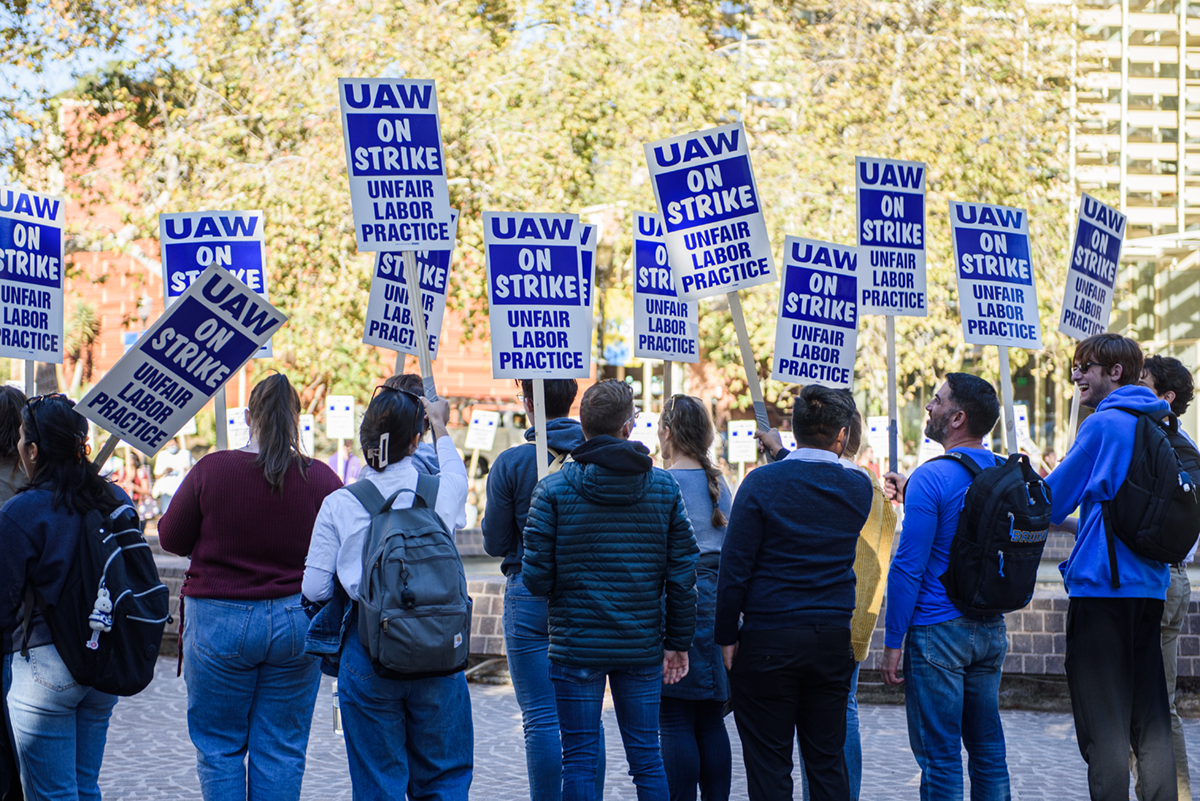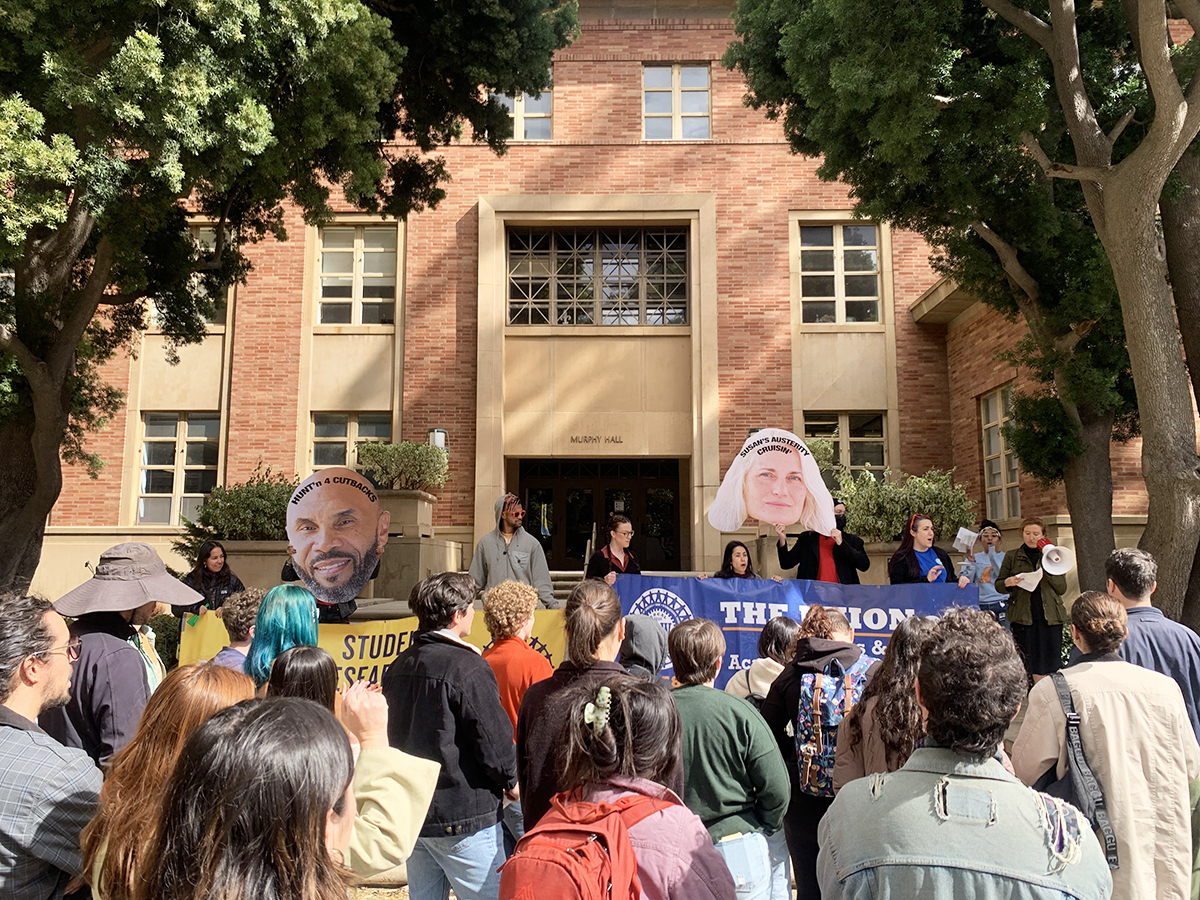UCLA creates new committees related to graduate education following negotiations

(Kaitlin Carlos/Daily Bruin)
By Anna Johnson
March 5, 2023 11:05 p.m.
UCLA announced the launch of three committees dedicated to assessing, analyzing and planning changes to graduate education following last year’s contract negotiations between the University of California and its academic workers.
The University and the United Auto Workers Local 2865 and Student Researchers United-UAW unions, which represented academic student employees and graduate student researchers, respectively, finalized agreements ensuring multi-year pay raises, increased paid family leave benefits, and health care support, broader transit benefits and improved job security in late December. The two unions later merged to operate solely as UAW Local 2865 in February.
[Related: Student Researchers United merges with United Auto Workers Local 2865]
The new committees – which include the Joint Administrative and Academic Senate Task Force on the Future of Graduate Education, the Committee to Discuss Impacts of the Collective Bargaining Agreement on the Research Enterprise, and the Healthy Climate Committee – will help address cost increases associated with greater compensation and benefits for academic workers, according to an email sent out by the University on Jan. 30.
The UCLA Committee to Discuss Impacts of the Collective Bargaining Agreement on the Research Enterprise, dedicated to examining research funding, structure and advocacy following the strike, released its report Feb. 13 outlining recommendations for changes to university research following the strike.
The committee recommended UCLA immediately set aside $5 million for one-time bridge funding to support departments that cannot cover graduate student researcher salary raises without compromising research and mentorship quality under existing grants. The University followed this recommendation, according to a March 2 announcement from UCLA.
The report also recommended the university improve financial communications and enhance transparency with employees.
Committee members criticized a lack of these attributes as a major harm to UCLA’s reputation, adding that many faculty and students do not understand university finances.
The committee also recognized the lack of faith that faculty and students have in UCLA’s support of them.
“The strike revealed that at least a subset of faculty, trainees and staff harbor mistrust for the UCLA administration,” the report said.
The Healthy Climate Committee, which will analyze the effect of the labor dispute on Bruins’ experience, and the Joint Administrative and Academic Senate Task Force, which will balance budgetary and resource allocations for graduate student programs, are both expected to release reports later this year on the future of graduate education. The former expects its report to be released soon, and the latter plans to release its report by the end of fall, according to the University.
Michael Dean, a doctoral student in the history department and member of the bargaining committee for UAW Local 2865, which now represents academic student employees and graduate student researchers, said many graduate students do not believe the University seeks to protect their interests.
“The University is interested in collecting more and more tuition,” Dean said. “It is not interested in investing in the people who do the teaching, the people who do the research.”
Academic student employees and graduate student researchers have expressed ongoing concern that UCLA will shrink graduate programs to decrease costs following the contract negotiations.
[Related: UCLA community leads protest against cuts to graduate student admissions]
The Committee to Discuss Impacts of the Collective Bargaining Agreement on the Research Enterprise said this concern was a possibility and recommended the University watch and report on trends to determine whether it is necessary.
Academic units may have to hire fewer TAs and offer fewer courses, sections and mentorship opportunities for undergraduate students, according to the report.
Although the report presents graduate program cuts as a potential course of action, a recent survey conducted by UAW Local 2865 confirmed that at least 89 departments across the UC system have already formally announced plans to make cuts.
UCLA declined to comment further on the subject and pointed back toward the public announcements regarding the committees.
Thalia Ertman, a history doctoral student, said in an emailed statement that she fears the consequences of these cuts.
“Cutting TA-ships will lead to larger class sizes, and that will inevitably lead to a decline in the quality of education for undergraduate and graduate students,” Ertman said in the emailed statement.
Academic student workers also said they feel the university did not take into account their voices in the decision-making process following negotiations.
Juan Pablo Gatica, strike captain for the Engineering VI Picket and a physics doctoral student, said he feels employees should be serving on the committees.
“Without any sort of input from graduate students or the union, it’s just going to turn into ‘Well, we should probably just shrink everything, hire less graduate students and have less TA appointments because we aren’t going to get any more money,’ and I think that’s wrong,” Gatica said.






